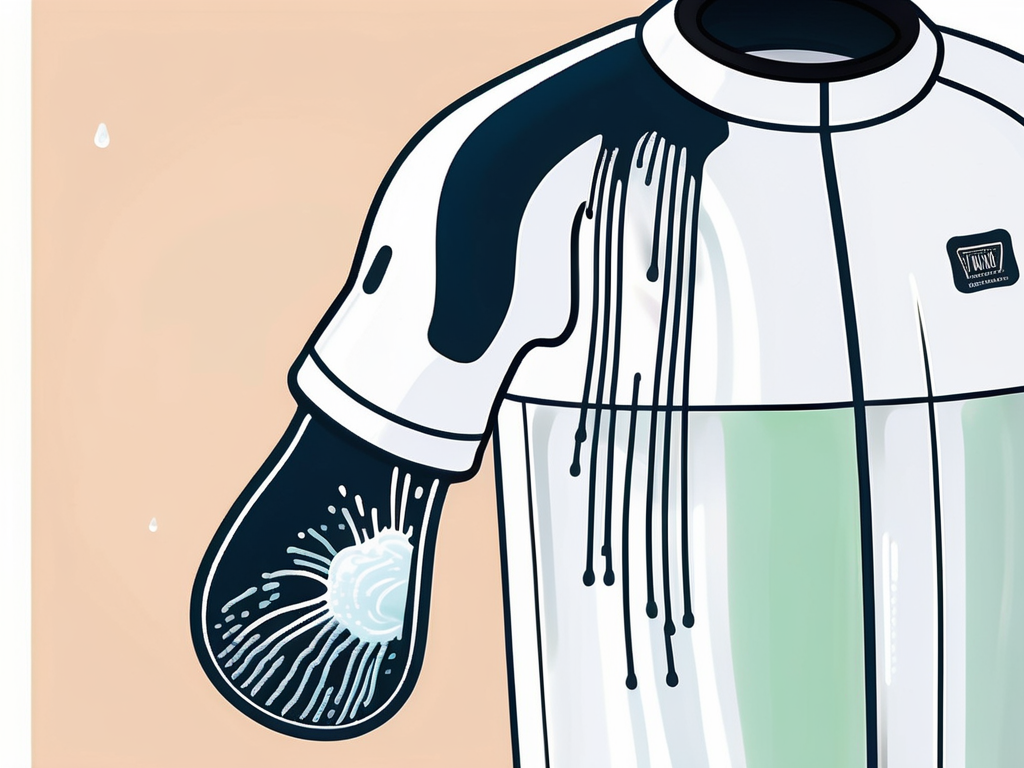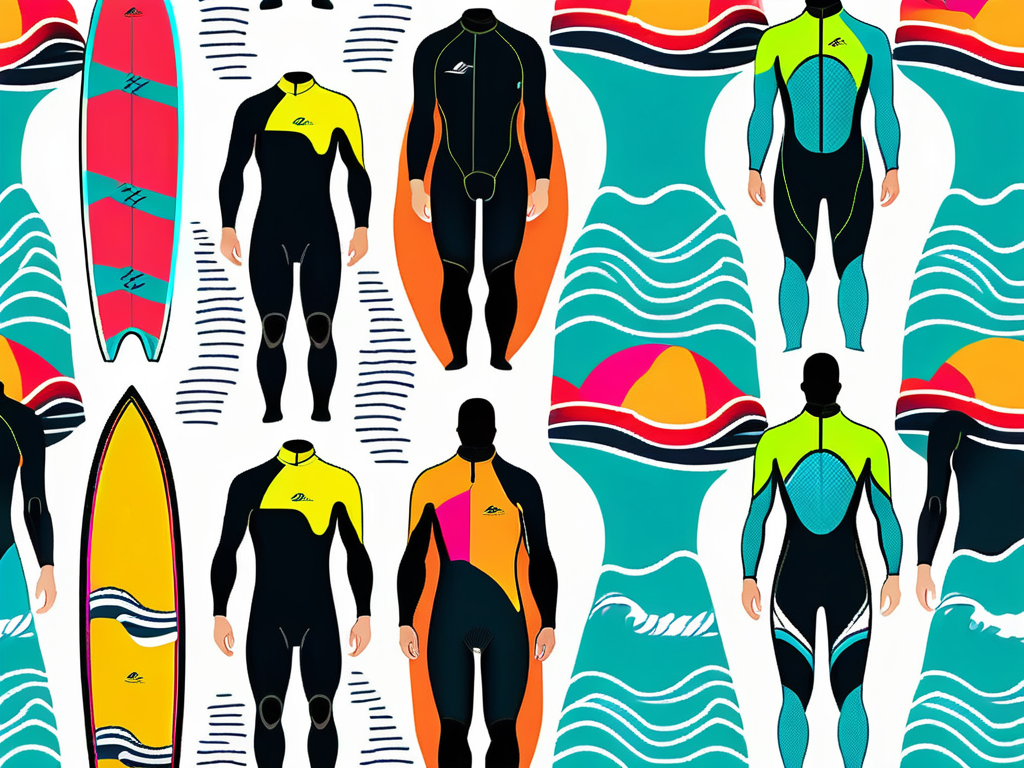The Ultimate Guide to Neoprene Springsuits
Neoprene springsuits are a popular choice among water sports enthusiasts for their versatility and functionality. Whether you're a surfer, diver, or swimmer, these suits provide the perfect balance of warmth and flexibility. In this ultimate guide, we will delve into all aspects of neoprene springsuits, helping you understand their benefits, choose the right one for your needs, and provide proper care for longevity. So, let's dive in!
Understanding Neoprene Springsuits
What is a Neoprene Springsuit?
A neoprene springsuit is a type of wetsuit designed for moderate water temperatures. It typically covers the torso, from the neck to the knees, leaving the arms and lower legs exposed. The primary purpose of a springsuit is to provide insulation and protection in cooler water while allowing for greater freedom of movement.

Benefits of Using Neoprene Springsuits
There are several benefits to using neoprene springsuits over other wetsuit options. Firstly, their shorter design offers increased flexibility and ease of movement, making them ideal for activities that require a full range of motion. Additionally, springsuits provide just enough insulation to keep you comfortable in mild to cool water conditions without causing overheating.
The lightweight nature of neoprene springsuits also makes them more suitable for warm weather, as they allow the skin to breathe and prevent excessive heat buildup. Finally, these suits are generally more affordable than full wetsuits, making them a popular choice for budget-conscious water sports enthusiasts.
Different Types of Neoprene Springsuits
Neoprene springsuits come in various styles and designs to cater to different water activities and personal preferences. Here are some common types:
- Shorty Springsuits: These are the most basic type of springsuit, providing coverage from the shoulders to the knees. They are great for warm water conditions or when added mobility is essential.
- Farmers Cut Springsuits: With longer legs and short or long sleeves, farmers cut springsuits provide more coverage and insulation. They are commonly used in colder water conditions.
- Sleeveless Springsuits: As the name suggests, these suits have no sleeves, providing maximum arm flexibility. They are suitable for warmer water conditions or for activities that require extensive arm movement, such as paddleboarding or water skiing.
When choosing a neoprene springsuit, it's important to consider the thickness of the material. Thicker neoprene provides more insulation, making it suitable for colder water temperatures. Thinner neoprene, on the other hand, offers less insulation but greater flexibility, making it ideal for warmer water conditions or activities that require a full range of motion.
Another factor to consider is the fit of the springsuit. It should be snug but not too tight, allowing for easy movement without excess material flapping around. A well-fitted springsuit will provide better insulation and prevent water from entering, keeping you warmer and more comfortable during your water adventures.
Choosing the Right Neoprene Springsuit
Factors to Consider When Buying
When it comes to choosing a neoprene springsuit, there are several factors to consider in order to ensure the perfect fit and functionality. Let's dive deeper into these factors:
- Water Temperature: One of the key factors to consider is the average water temperature you will be using the suit in. This is crucial as it helps determine the appropriate thickness and insulation level of the springsuit. If you'll be in colder waters, a thicker suit with more insulation will provide the necessary warmth. On the other hand, if you'll be in warmer waters, a thinner suit will offer more flexibility and breathability.
- Activity Level: Another important consideration is the intensity and type of activity you will be engaging in while wearing the springsuit. If you'll be participating in activities that require a lot of movement, such as surfing or paddleboarding, you may benefit from a shorter suit or one made with more flexible neoprene. This will allow for a greater range of motion and enhance your overall performance in the water.
- Fit and Comfort: The fit and comfort of the springsuit are paramount. It's essential to try on different brands and styles to find one that fits snugly but doesn't restrict movement. A well-fitting suit will provide optimal insulation and comfort, allowing you to fully enjoy your time in the water without any distractions or discomfort.
Sizing and Fit Guide
Getting the right size for your neoprene springsuit is crucial for both comfort and functionality. Here are some additional tips to help you find the perfect fit:
- Refer to the manufacturer's size chart and follow their guidelines for accurate measurements. Each brand may have slightly different sizing, so it's important to rely on their specific recommendations.
- Ensure the suit hugs your body without creating any gaps, especially around the neck, wrists, and ankles. A proper fit will prevent water from entering the suit, keeping you warm and comfortable throughout your water activities.
- Don't be afraid to try different sizes and brands if necessary. Sizing can vary between manufacturers, and what may be a perfect fit in one brand might not be the same in another. Experimenting with different options will help you find the ideal fit for your body shape and size.
Price vs Quality: Making the Right Choice
When it comes to neoprene springsuits, price and quality often go hand in hand. While it may be tempting to opt for a cheaper suit, investing in a higher quality suit can offer better durability, flexibility, and overall performance. A higher quality suit will be more resistant to wear and tear, ensuring it lasts longer and provides reliable protection. Additionally, the flexibility of the neoprene material in a high-quality suit will allow for greater freedom of movement, enhancing your water sports experience. Therefore, it's important to consider your budget and find a balance between price and quality that suits your specific needs. Remember, a well-chosen springsuit is an investment that will enhance your water adventures for years to come.
Care and Maintenance of Neoprene Springsuits
Cleaning Your Springsuit
Proper cleaning is essential to maintaining the performance and longevity of your neoprene springsuit. Follow these steps to keep your suit in top condition:

- Rinse the suit with fresh water immediately after each use to remove salt, sand, and other debris.
- Use a mild detergent specifically designed for neoprene or wetsuits.
- Gently hand wash the suit, paying extra attention to areas with stains or odors.
- Avoid machine washing or using harsh chemicals as these can damage the neoprene material.
- Hang the suit to air dry in a shaded area, away from direct sunlight.
Storing Your Springsuit Properly
To prevent your neoprene springsuit from losing its shape and developing odors, follow these storage guidelines:
- Completely dry the suit before storing it to avoid mold or mildew growth.
- Store the suit in a well-ventilated area, away from direct sunlight or excessive heat.
- Avoid folding or creasing the suit, as this can damage the neoprene material.
- Consider using a dedicated wetsuit hanger to maintain the suit's shape and prevent sagging.
Repairing Damages and Prolonging Suit Life
Despite proper care, neoprene springsuits can sometimes develop small tears or damages. Here are some tips for repairing and prolonging the life of your suit:
- Use a neoprene repair kit to patch minor tears or holes.
- Avoid exposing the suit to sharp objects or abrasive surfaces that could cause further damage.
- Regularly inspect the suit for any signs of wear and tear, such as loose seams or worn-out neoprene, and address them promptly.
- If a major repair is required, consult a professional wetsuit repair service to ensure proper restoration.
Enhancing Your Experience with Neoprene Springsuits
Tips for Wearing Your Springsuit
Here are some tips to enhance your experience when wearing a neoprene springsuit:

- Apply sunscreen to exposed areas of your body to protect against harmful UV rays.
- Consider wearing rash guards or neoprene gloves and booties for added protection and insulation.
- Adjust the suit's collar and cuffs to prevent water from entering and ensuring a proper seal.
- Stretch and warm up before engaging in water activities to improve flexibility and prevent muscle strains.
Maximizing Comfort and Performance
To maximize your comfort and performance while wearing a neoprene springsuit, keep the following tips in mind:
- Choose a suit with strategic paneling and seams that allow for a greater range of motion.
- Wear appropriate swimwear underneath to prevent chafing and ensure a comfortable fit.
- Practice proper breathing techniques to optimize buoyancy and control while in the water.
- Stay hydrated before, during, and after your water activities to avoid dehydration and cramping.
Safety Measures When Using Springsuits
While neoprene springsuits offer many benefits, it's crucial to prioritize safety when using them. Here are some important safety measures to keep in mind:
- Always check weather and water conditions before heading out, and avoid risky or dangerous situations.
- Inform someone of your planned water activities and estimated return time for safety purposes.
- Never venture into the water alone, especially in unfamiliar or hazardous areas.
- Consider taking swimming or water safety classes to enhance your skills and confidence in the water.
Now armed with the knowledge of neoprene springsuits, you can confidently choose the right one for your needs, provide proper care, and enhance your water sports experience. Remember to prioritize safety and enjoy your time in the water!







